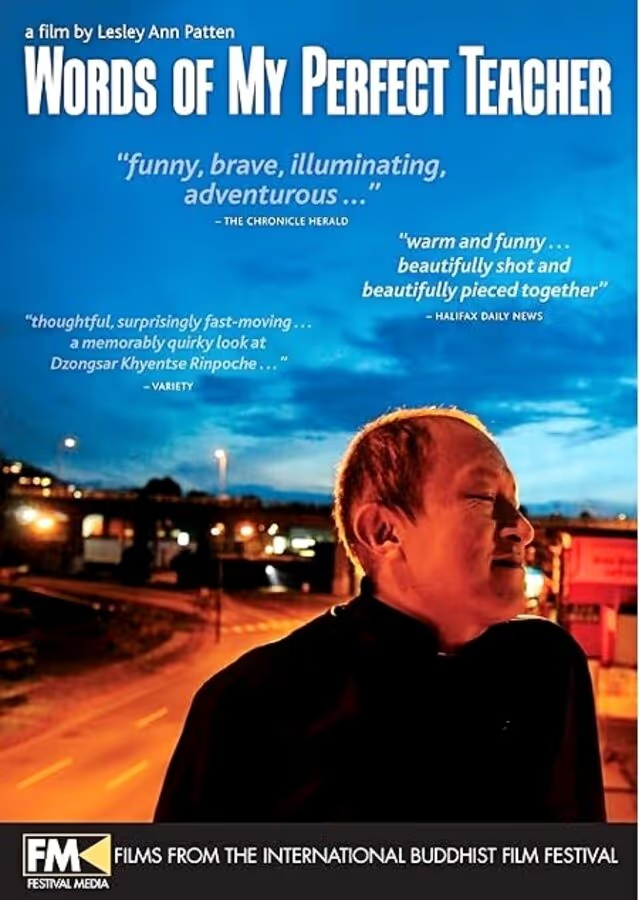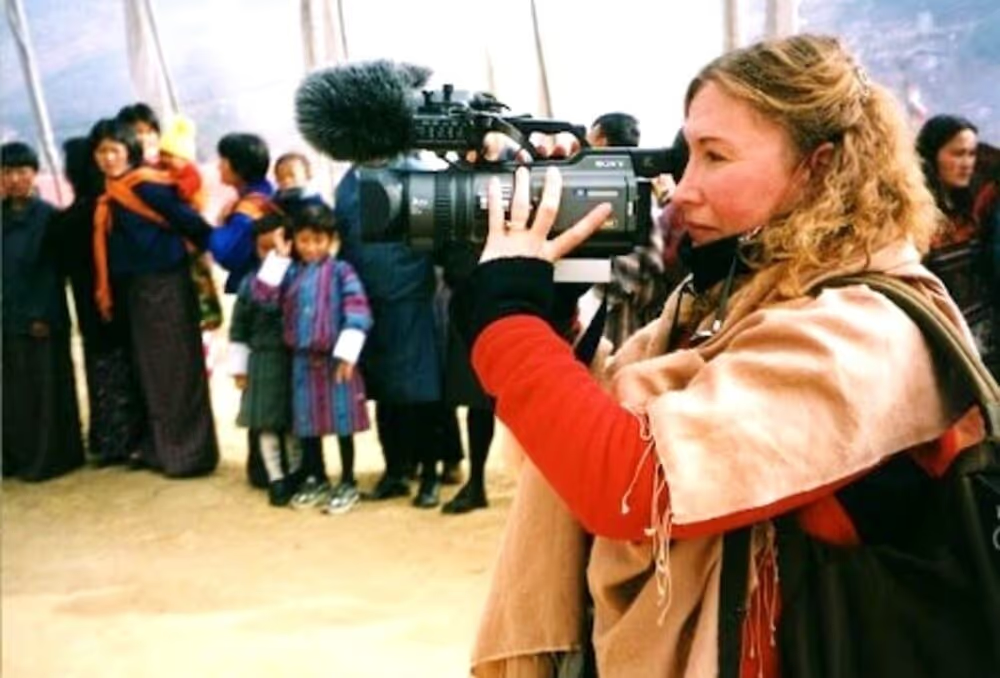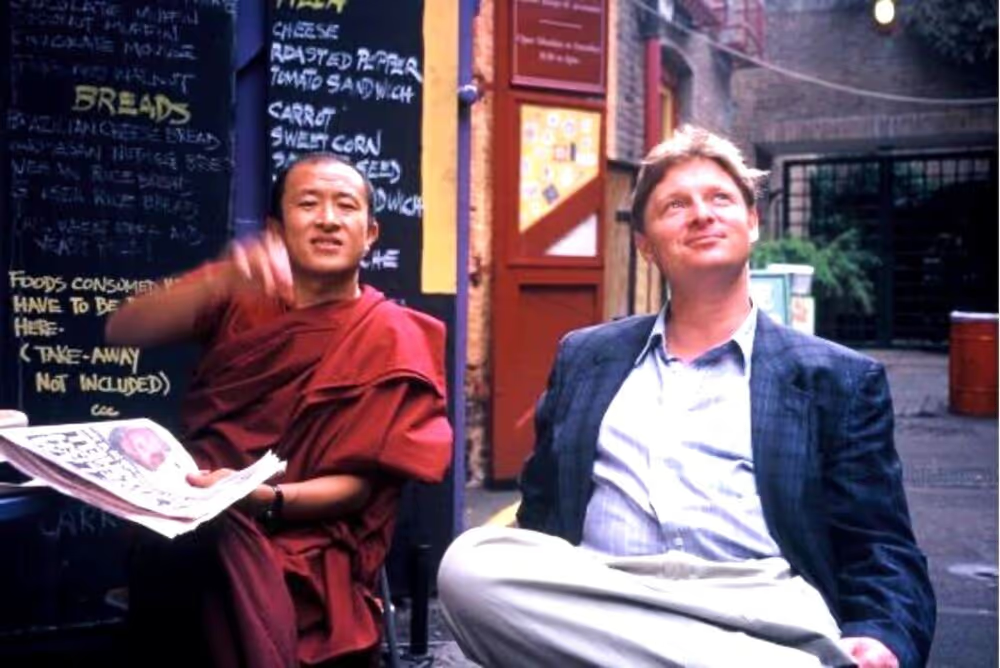
Khyentse Rinpoche is a renowned teacher in Tibetan Buddhism and is also famous for being a filmmaker, an unconventional role for a lama. He began his film career working with Bernardo Bertolucci on 'Little Buddha', before producing 'The Cup' (2000) and 'Travellers & Magicians' (2003). He stated in the film that Rinpoches like him painted Tangkas a thousand years ago to express the wisdom and compassion of the Buddha, and here he was doing the same with the updated modern technology of cinematography.
Lesley Ann Patten introduces us to Khyentse Rinpoche as he resides in London, following him to the World Cup in Germany, to the United States immediately after the 9/11 attack, and finally to Bhutan where we witness Khyentse Rinpoche assuming his traditional role. Along the way, Patten detours to Los Angeles to meet Gesar Mukpo, son of Trungpa Rinpoche and Steven Segal's action movie star, who are two well-known tulkus reincarnated in the Western world.

What is a perfect teacher, and what does a perfect teacher look like? Growing up in the context of traditional monastic training, Khyentse Rinpoche manages to apply a thoroughly modern way of helping his Western students, but does not deviate from the profound teachings of Buddhism. At the same time, Rinpoche demonstrated his solemn respect for his lineage guru and the traditional teachers who are so highly valued.
The teachings of Buddhism taught in the film were introduced as parts of everyday life. The film also explored the role, behavior and importance of a teacher in Vajrayana Buddhism. The importance of devotion and the teacher-student relationship were revealed in their conversations:
"He has to be a mirror to see yourself, but also a killer, the man or woman you have hired to completely dismantle 'you'... and a student must be like a patient, a teacher like a doctor...," explained Rinpoche.
I would not be surprised if one is overwhelmed by the number of enlightening words in the film uttered with a smiling, amused face. However, this lama is so 'ordinary' to the dismay of his students. He cooked, drank, watched soccer games and was late. As the computer engineer in the movie commented, "If he is enlightened, why doesn't he act like an enlightened being?"
"When you have no obsession, when you have no complexes, when you have no inhibitions... what more enlightenment do you want?"

In watching the film, the interaction between the teacher and the student, the conflict of the fans at the World Cup match, the episode of the terrorist attack in New York, and as a result, the mind as the master of happiness and suffering was clearly depicted. The film also offers a glimpse into the Tibetan tradition of Vajrayana and the Buddhist country of Bhutan, where the traditions and scenic landscape are in stark contrast to the rest of the world.
The film ends when Rinpoche enters a meditation retreat and the students return home. He concludes by praising the Buddha:
"Finally, how wonderful it is, even he did not remain an immortal being."
A definite sign of impermanence.
*This is a translation of an article by DR. WS CHAN entitled "Words of My Perfect Teacher" and published in Buddhistdoor Global on March 1, 2012.
Link:










